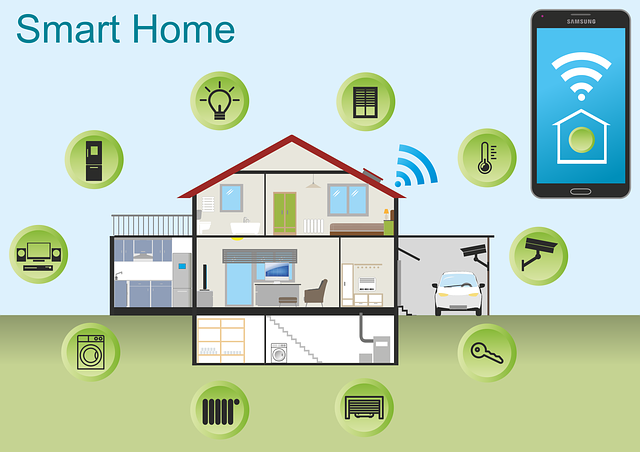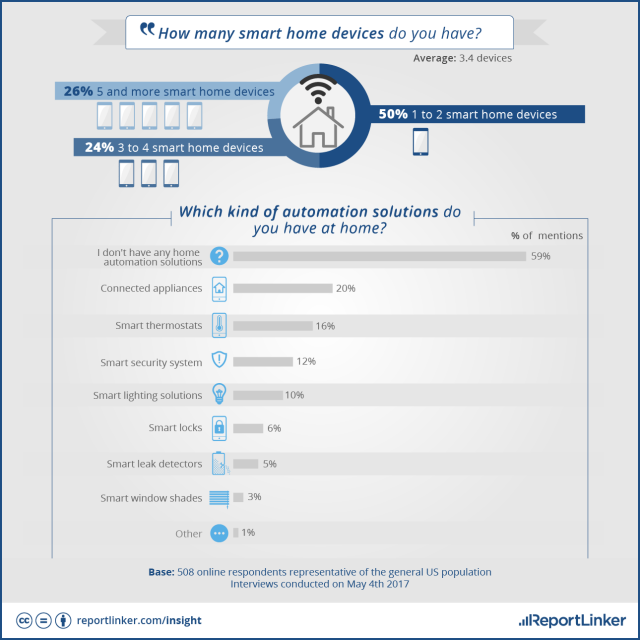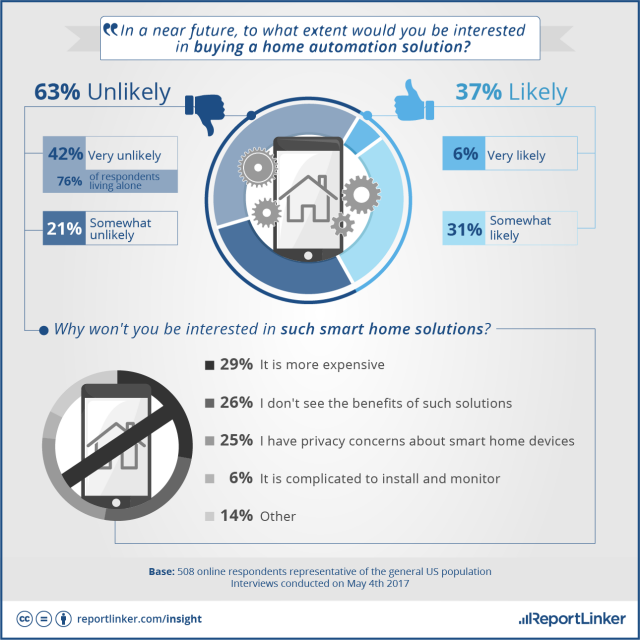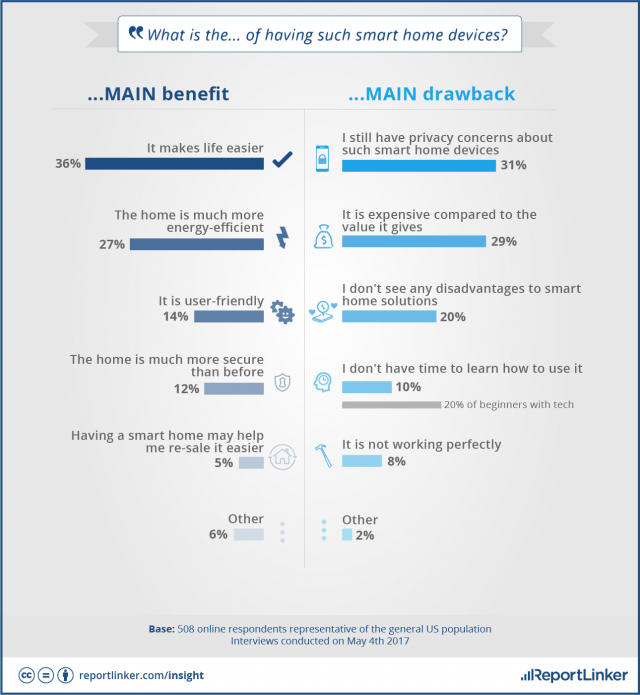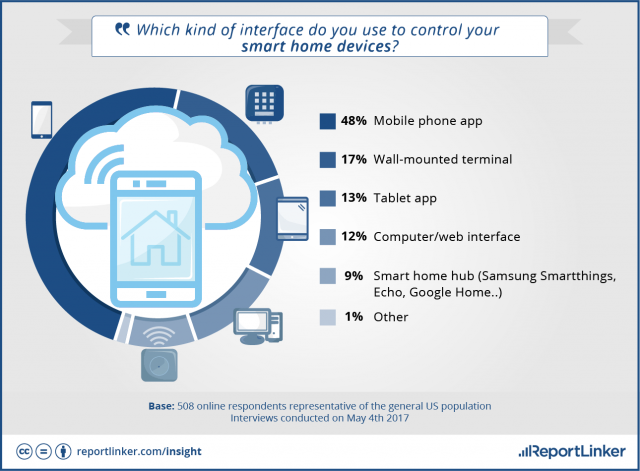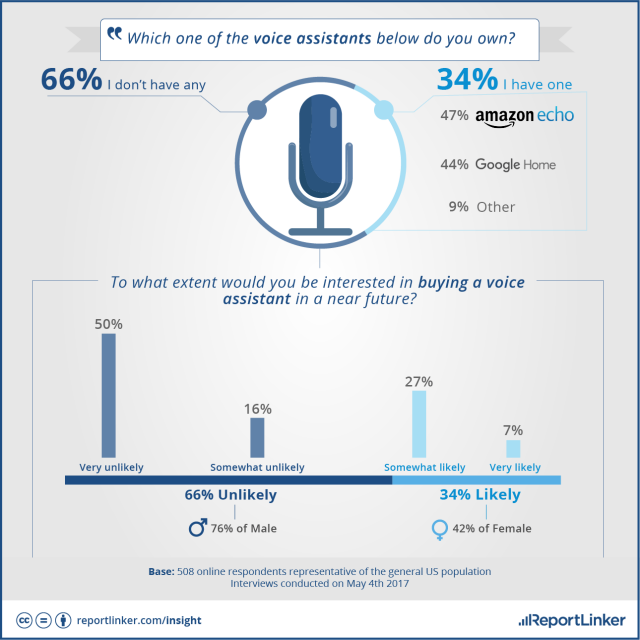A future like that described in so many sci-fi stories, wherein humans can simply speak aloud to some AI or voice-enabled electronic assistant to make physical changes or initiate desired actions within their homes, is already a reality. Except, right now it’s a limited reality, albeit one poised to become the norm over the next couple of decades. The question for businesses providing smart home tech is, who will be the market-leaders and make the big profits during that span of time?
ReportLinker has recently conducted research comprising 508 American online respondents which can help businesses and entrepreneurs that are selling smart home tech to figure out how to orient their marketing efforts and allocate their marketing budgets.
One result of the survey research found that nearly 60% of Americans don’t own any smart home devices. However, more than a quarter have five or more, and 24% have three or four. Statistically, the average number owned among respondents is 3.4. The biggest use of the technology is for smart appliances, followed pretty closely by smart thermostats.
But, those who don’t already own smart home tech tend to be entrenched in their attitudes. Among these respondents, 42% said that they are adamant they won’t be getting smart tech in their homes anytime soon, including a very large 76% share of those who live alone. Predominant reasons for resisting the technology are cost (29%), lack of benefits (26%), and concerns about privacy such as secret government surveillance or identity hacking (25%).
On the other hand, among those who own smart home tech the love for it is strong. Their take is that there’s plenty of benefit and the cost is well worth it. Among these individuals, 36% say the predominant advantage is that smart home tech just makes their lives easier, while another 27% say their monthly energy bills are lowered, and 12% cite increased home security. However, 31% still worry about privacy issues, and 29% opine that the technology is expensive relative to what it gives.
Owners of smart home tech far and away prefer to utilise an app on their smartphones to control their home devices (48%). Another 13% utilise such an app on their tablets, while 17% make use of wall-mounted units for control. Perhaps surprisingly, only 9% utilise a smart home “hub”. This could be an important marketing and selling point for providers of the technology.
The smart home future is the voice assistant. More than one-third of respondents with smart home tech say that they already have a voice assistant (for the most part either Google or Amazon). Strangely enough, among those who don’t have one, 76% of those who say that it’s “unlikely” they’ll buy a voice assistant in the near future are men, while a mere 42% of female respondents have the same take. Perhaps this sharp difference is due to men’s “do it yourself” attitude.
Smart sellers of smart home technology can utilise these data to their advantage. The rest of us can simply sit back, be fascinated, and ask Alexa to send out for pizza.
Find a Home-Based Business to Start-Up >>> Hundreds of Business Listings.











































